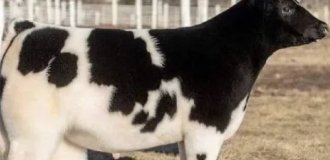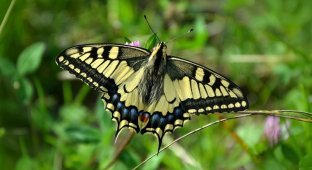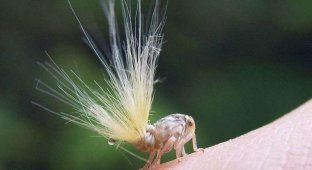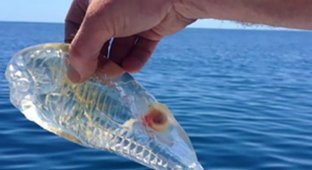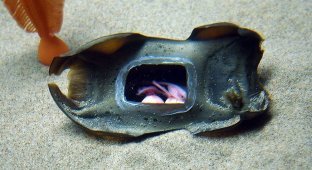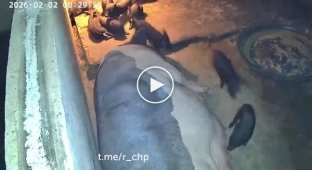This insect did not care about all the rules of decency. In the literal sense of the word. The slobbering penny will turn even the most charming area into a spit-stained gateway. Uncivilized? And how! But what will you do to her? You can't even touch her - she's so disgusting! 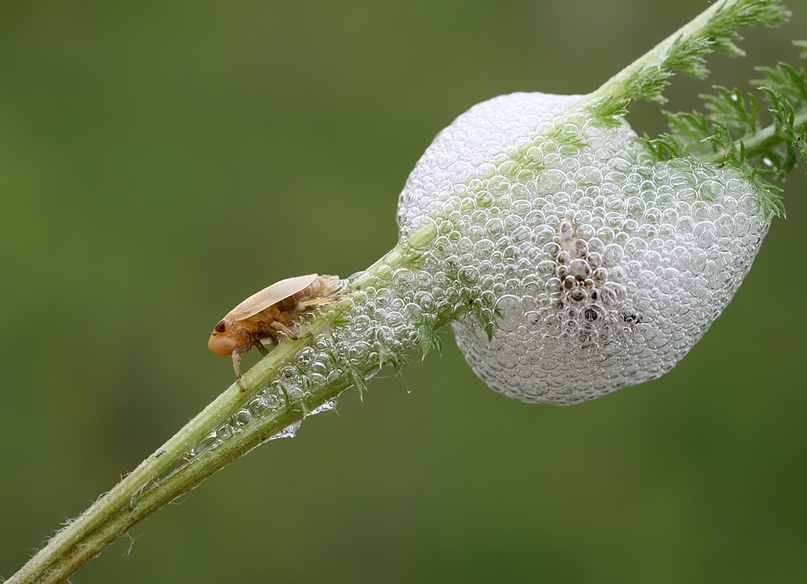
Why are you angry? I just wanted to have a foam party!
The slobbering pennice is a cicada. Adults of this species do not differ in hop habits. On the contrary, they look too inconspicuous: size - 5 mm, color - gray-brown tones. If you meet one in the vast expanses of Eurasia and Africa, where the insect lives, you are unlikely to catch it doing something shameless. 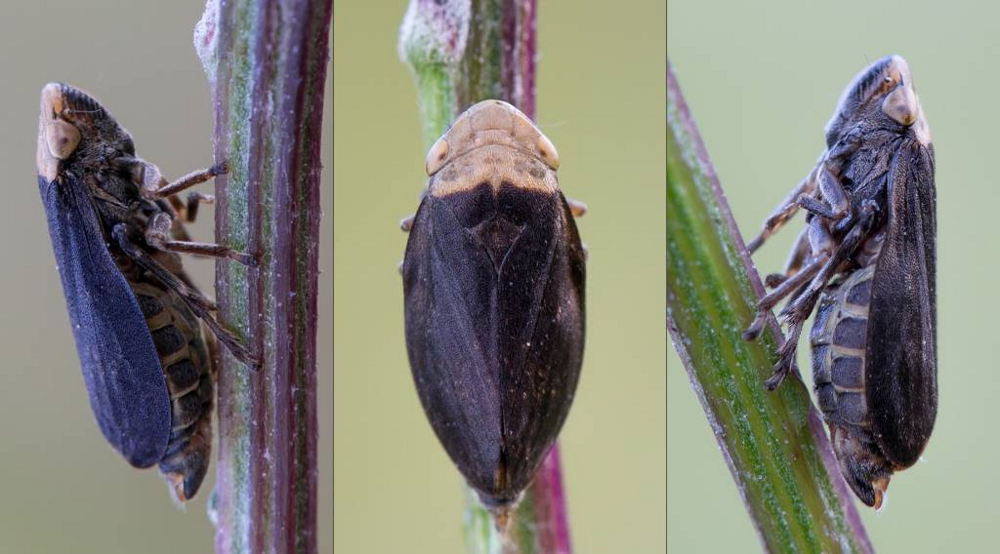
Such a modest thing. And you wouldn’t think that she has been a hooligan since childhood!
Her children are a completely different matter. Since autumn, the cicada lays eggs on plants. In the spring, little ones hatch from them. That's when the problems begin. And not only among purists, but also among gardeners. 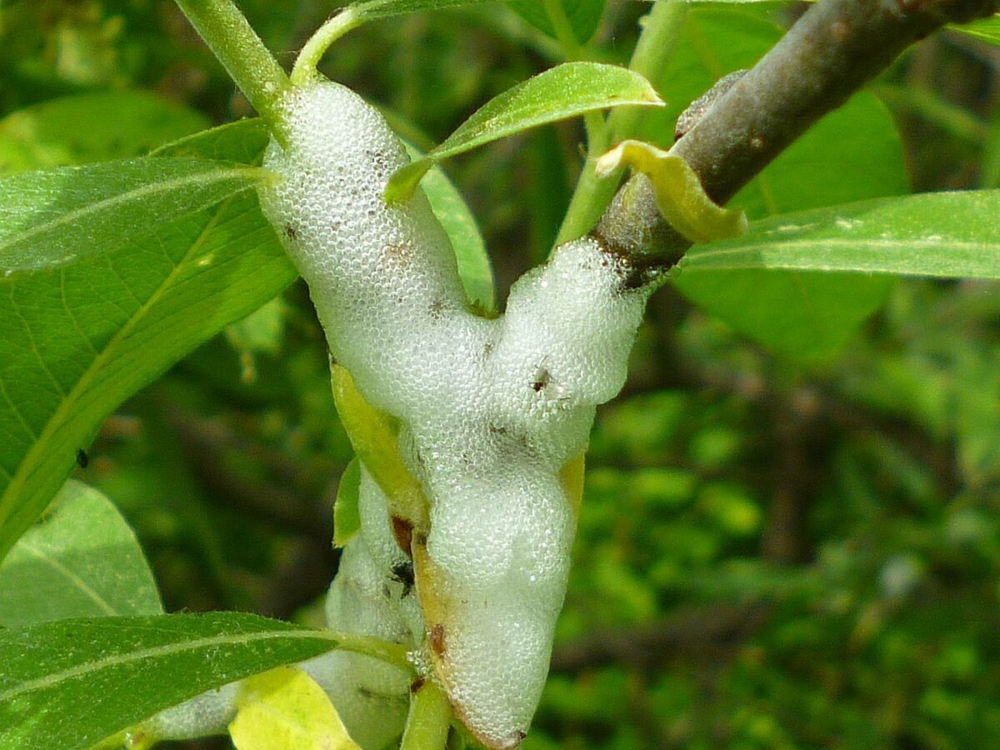
Typical teenagers...
Cicada larvae are even smaller than their parents - 3-5 mm. But the appetite of growing organisms is not sickly. The baby sits on the stems, looking for the sweetest corner. And as soon as he finds it, he grabs onto it and won’t let go. For 50 days, the larva draws all the juices from the plant. And at the same time it releases that very liquid. 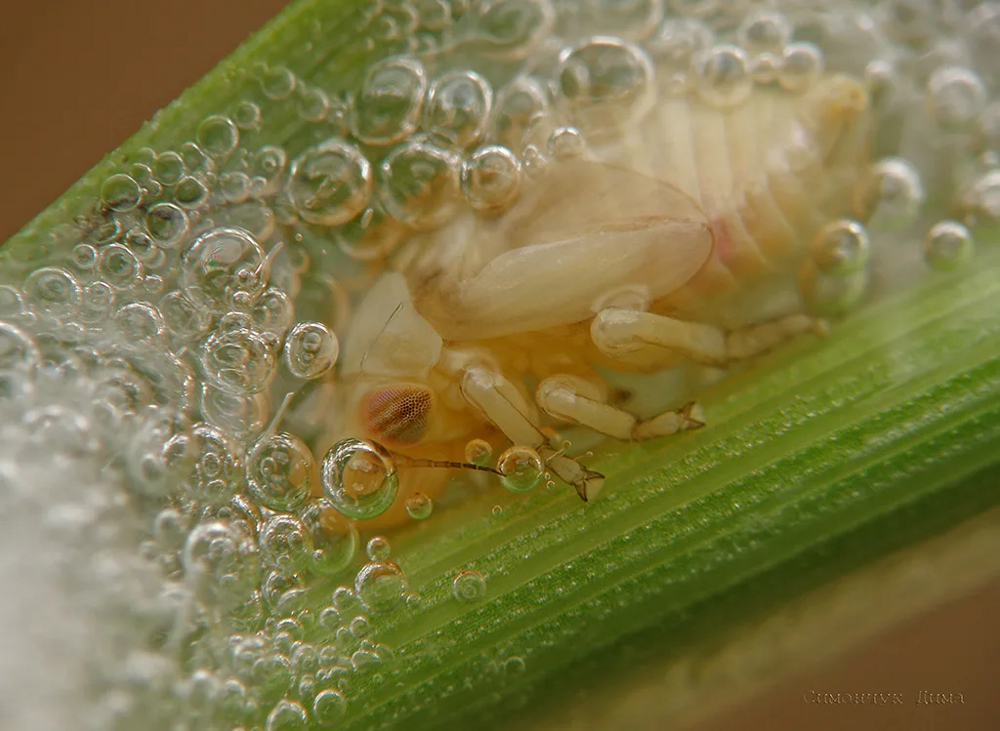
Eat all day, and then lie down in a bubble bath. This is who has heaven on earth.
When we were kids, we called it “rabbit saliva.” Scientists say that the substance does not contain spit. It consists of mucin. In general, even we have this thing: mucin is the main component in the secretions of all mucous glands. But the pennice whips up the secretions, wrapping itself in sticky, nasty foam. In this outfit, she is protected from drying out, and from predators, and from bad weather, and from - ta-dam! - insecticides. And your hand will involuntarily reach out for poison if you notice how a cicada spits on your gardening efforts. 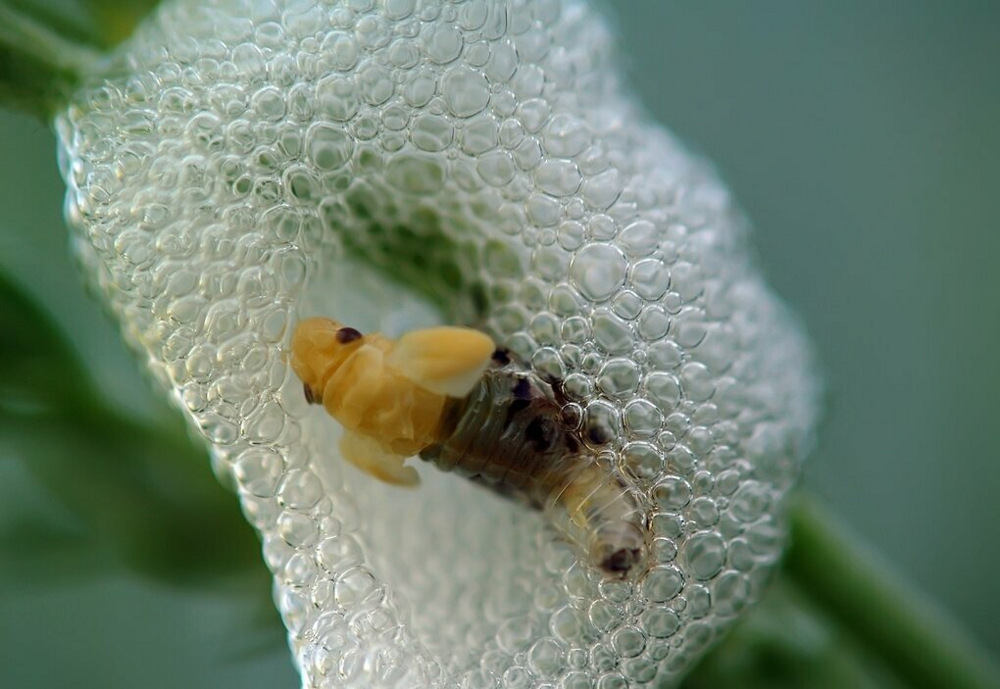
What a disregard for others!
The larvae are not picky when it comes to taste. They eat everything from weeds to cultivated trees. In total - no less than 170 plant species! And if the little one is unlikely to cause serious damage to the apple tree, the strawberry harvest may be in jeopardy. First, growth will slow down and then stop altogether, then the leaves will begin to wrinkle and turn yellow, and finally the entire bush will die. And all because of uncultured small fry that dress up in drool! What should I do? 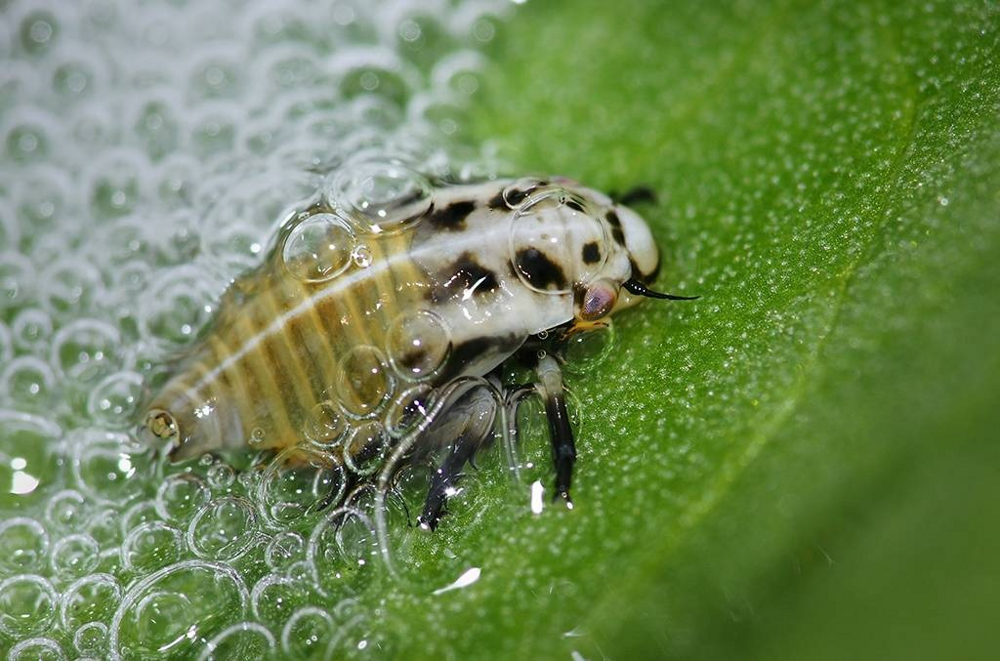
I, like Venus, emerged from the foam! Yes, not marine, but what's the difference?
The first thing that comes to mind is insecticides. The problem is that at the stage when the larva is brazenly sitting on the stem in its glamorous outfit, many chemicals will not have an effect on it. There are two approaches: the first is preventive. Treat the plants before flowering, when the little things have already crawled out of the eggs, but have not yet hidden themselves in the fur coat. The second is after the fact, when the completely crazy cicada has already emerged from its foamy hiding place. 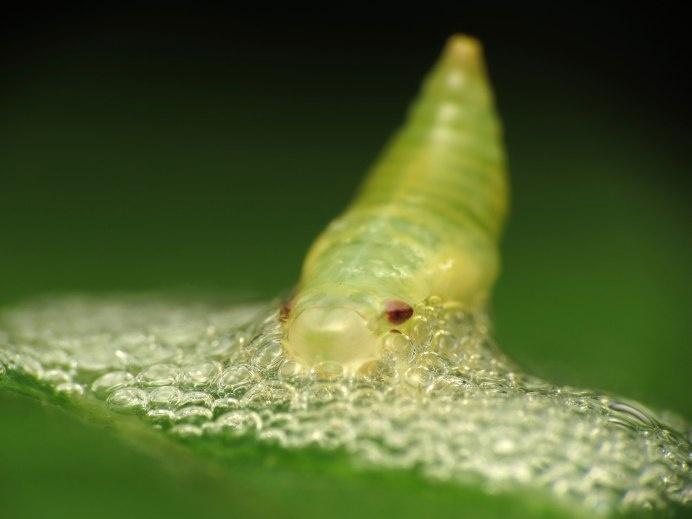
Good afternoon, can you treat the lady to freshly squeezed juice from your harvest?
Folk remedies are also on the move. The simplest thing: you take your own hand out of your pocket and put it away. Don't forget to use a damp cloth or glove. The “saliva” of cicadas is not only nasty, but also sticky. If the pennie has just taken a fancy to your garden and has not had time to multiply there abundantly, such a measure may be sufficient. 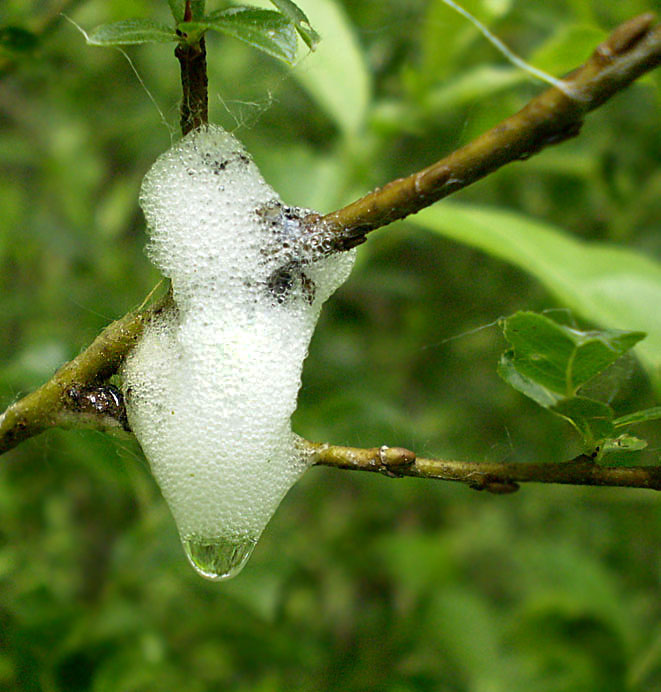
It is doubly offensive if the spit turns out not to be from an insect, but from a person...
If you notice that your farm is pretty much spit on, then you can use heavier artillery. Laundry soap, for example. Dilute 20 g into 10 liters of water and spray the affected plant with this product. A dusting of wood ash, infusions of tansy, wormwood, celandine and garlic will do. The latter ate the dog in the fight against all kinds of parasites, including vampires. Chop up a glass of cloves, pour hot water over it for a couple of hours - and may Van Helsing be with you.
Add your comment
You might be interested in:






